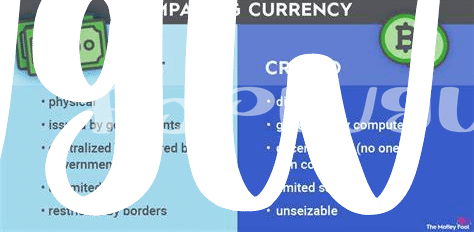Breaking down the Basics: What Is Decentralization? 🌐

Imagine a world where no single person or group has all the control over money 💰. Instead, picture a big, interconnected web 🕸 where everyone holds a tiny piece of power. This is what we call decentralization. In simpler terms, it’s like a game where everyone gets to play a part, no one watching from the sidelines. Instead of having one big boss who makes all the decisions, decentralization spreads the decision-making across a wide net, giving more people a say in how things are done.
Now, why does this matter? Well, in a system where power is shared, no single point can cause everything to crash and burn 🚒. It’s a bit like building a house with many doors instead of just one. If one door gets stuck, you’ve got plenty of others to choose from. This idea is at the heart of how Bitcoin operates, challenging the traditional financial systems where a few hold the reins. Here’s a quick look at the difference:
| Decentralized Systems | Centralized Systems |
|---|---|
| Power is spread out | Power is held by a few |
| Many decision-makers | Single/few decision-makers |
| Multiple points of access | Single point of access |
| Resilient to failure | Vulnerable to failure |
Entering this decentralized world enables everyone to have a say, making it a key player in shaping a more inclusive and resilient financial future.
The Genesis of Bitcoin and Financial Freedom 🚀
Imagine a world where you have the power to manage your money without banks or governments telling you what to do. That’s the dream that led to the creation of Bitcoin in 2008. Unlike traditional money, which relies on big institutions, Bitcoin lives on a network of computers worldwide. It’s like having a digital wallet that no one controls but everyone can trust. This was a revolutionary idea at the time because it meant for the first time, people could send and receive money anywhere, without permission or high fees.
Bitcoin’s creation was inspired by a desire for financial freedom—an opportunity for anyone, no matter where they are in the world, to take control of their financial destiny. As a digital currency that operates independently of conventional banking systems, it offers a new way of thinking about money. It’s not just about making payments easier; it’s about challenging and changing the status quo, giving power back to the people. For more insights on advancing Bitcoin technologies and their implications, like smart contracts, take a detour to https://wikicrypto.news/irs-and-bitcoin-navigating-cryptocurrency-taxes-in-the-usa.
Under the Hood: How Bitcoin Works 🛠

Imagine a world where every transaction you make, from buying coffee to getting your paycheck, happens directly between you and the other person, without any banks or credit card companies in the middle. That’s the magic of Bitcoin. At its heart, Bitcoin is like a digital ledger, a record book that’s shared across thousands of computers around the world. Every time someone buys, sells, or transfers bitcoins, this action is recorded in this ledger. What makes it super secure is that, to add anything new, a majority of these computers have to agree. It’s like if you and your friends had a shared notebook, but before anyone could write in it, most of you had to check that the new note made sense. This process, called “mining,” not only adds new transactions but also generates new bitcoins, rewarding those who participate in this system. It’s a brilliant blend of technology and community, working together to create a new kind of money.
Shaking up the System: Bitcoin Vs. Traditional Banks 🏦

Imagine a world where people can manage their money without needing a traditional bank. That’s the promise of Bitcoin, a digital currency that operates on a system of trust and verification, not controlled by any one institution. This revolutionary approach has started to challenge the way traditional banks operate. Banks, which have been the cornerstone of financial systems for centuries, rely on centralized control. They decide who can open an account, who gets a loan, and how your money is moved. On the other hand, Bitcoin is like a community garden where everyone has a key; it’s open, borderless, and operates 24/7, disrupting the conventional banking model.
To understand this shift better, consider how Bitcoin bypasses traditional banking barriers. People all over the world are now able to send and receive money quickly, without hefty fees or waiting for bank approval. This global embrace is not just about moving money; it’s about empowering individuals. For those curious about the intricacies of Bitcoin, including aspects like how smart contracts work within the bitcoin network explained, it becomes clear why this technology is so transformative. As we move toward a future where decentralized money is more widely understood and accepted, the tension between the old guard and the new way of thinking about finance continues to grow. 🌍🚀🛠
Real Stories: People Embracing Bitcoin Globally 🌍
Around the world, people from bustling cities to remote villages are discovering the power of Bitcoin to change their lives. In Venezuela, where inflation has skyrocketed, families are using Bitcoin to protect their savings from vanishing into thin air. Meanwhile, in parts of Africa, where access to traditional banking is limited, people are using Bitcoin to send money to loved ones without hefty fees. It’s a digital revolution that’s putting the power back into the hands of the people, offering a glimpse of financial freedom that was hard to imagine just a few years ago.
This global embrace of Bitcoin isn’t just about making payments or saving money; it’s also about creating a sense of community and shared purpose. 🌍💪 From Tokyo to Toronto, individual stories of empowerment are emerging. Freelancers in Asia receiving Bitcoin for their services without worrying about currency exchange losses, or small business owners in Europe bypassing high transaction fees charged by traditional banks. Every story is a testament to the transformative potential of Bitcoin, illustrating a world where financial barriers are dismantled, one transaction at a time. 🚀✨
| Location | Use Case | Impact |
|---|---|---|
| Venezuela | Savings Protection | Preservation of wealth despite hyperinflation |
| Africa | Money Transfers | Access to low-cost remittances |
| Asia | Freelance Payments | Freedom from currency exchange barriers |
| Europe | Small Business Transactions | Lower transaction costs |
Possible Futures: the World with Decentralized Money 💭

Imagine a tomorrow where your money isn’t tucked away in a bank, but lives freely on your phone or computer, accessible from anywhere in the globe. It’s a future where sending money to your friend across the sea is as simple as sending a text message, no hefty fees or lengthy waits involved. This dream hinges on the magic of decentralization, powered by technologies like Bitcoin. Not just a boon for tech enthusiasts, this shift promises to redefine fairness in finance, making wealth management accessible to everyone, no matter where they live or how much they earn.
Transitioning to decentralized money doesn’t just alter how we transact; it could reshape entire economies, providing a canvas for innovative services and freeing people from the clutches of oppressive financial policies. Curious about how these changes play nicely with current laws, especially taxes, or how they could be sustainable in the long run? Dive into details with sustainable bitcoin mining practices for the future market trends. It’s more than a technological revolution; it’s a gateway to financial empowerment and ecological responsibility 🌍💡🔄.
